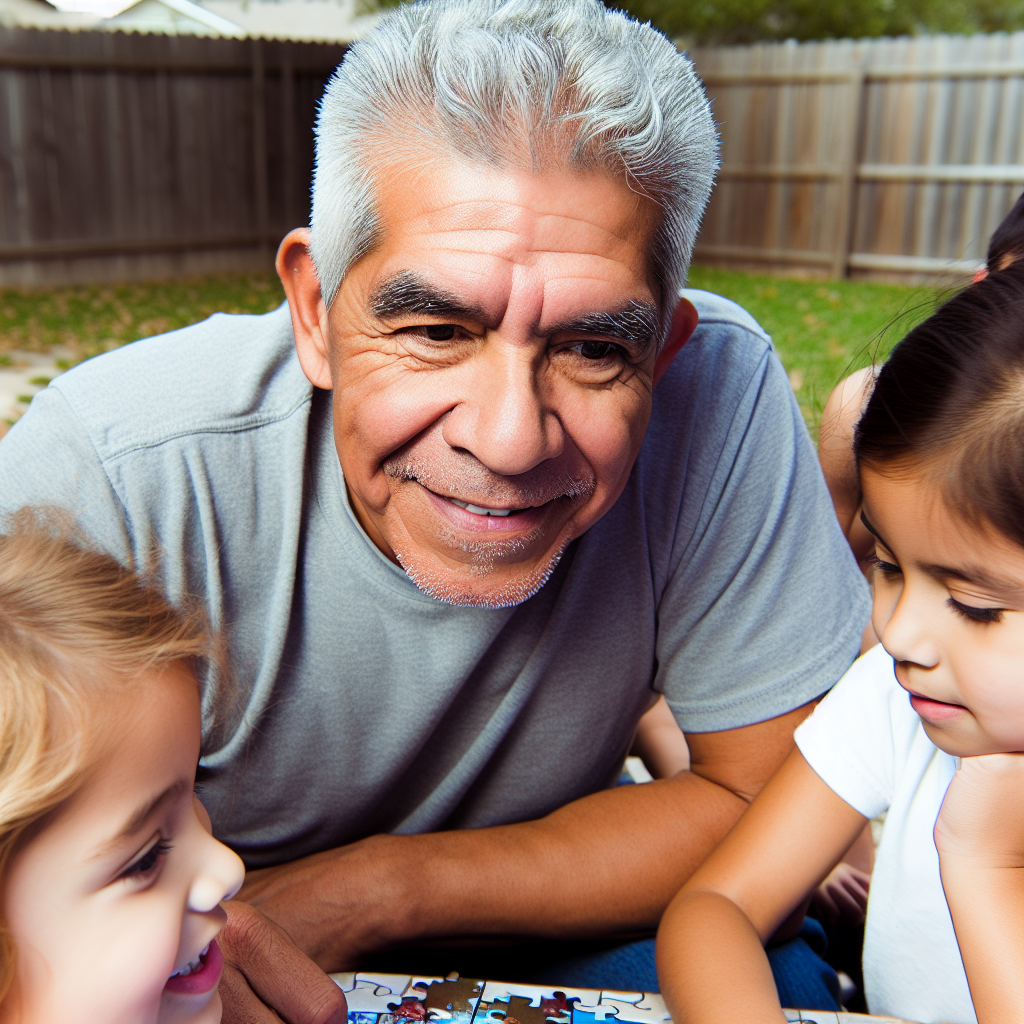Navigating Fatherhood After 50: Embracing the Journey with Confidence
Becoming a parent later in life brings a unique blend of perspectives, challenges, and rewards. Fatherhood after 50 is increasingly common as men pursue parenthood in their mature years, often balancing established careers and personal growth with the demands of raising children. While your kids may be growing older, your journey as a parent is still evolving, requiring new approaches to connect, guide, and support them. This article explores the realities and opportunities of fatherhood after 50, offering practical advice for maintaining strong family bonds, adapting to changes, and thriving in this important role.
Understanding the Dynamics of Fatherhood After 50
As children grow, their needs change dramatically. For fathers over 50, parenting means adapting to new developmental stages with life experience on your side. This perspective can be a valuable asset but also requires conscious effort to stay connected.
The Advantages of Mature Parenthood
Older fathers often bring emotional stability, patience, and financial security to their families. Their life experience helps in providing thoughtful guidance and a calm presence during challenges. They are also more likely to appreciate the value of time spent with children.
Key benefits include:
– Greater emotional maturity and patience
– Established career providing financial stability
– Reflective perspective on parenting mistakes and successes
– Appreciation for the fleeting nature of childhood
Challenges Unique to Fatherhood After 50
Parenting teens or young adults when you are older can raise concerns about energy levels, health, and generational gaps. These challenges require mindful adjustments.
Common hurdles include:
– Physical stamina differences compared to younger parents
– Generational differences in culture and technology
– Possible concerns over longevity and long-term involvement in children’s lives
– Balancing personal health with parenting responsibilities
Understanding these factors helps fathers prepare and develop strategies for effective parenting in their mature years.
Building Strong Relationships with Growing Children
When your kids get older and you’re still grounded, cultivating a healthy, open relationship becomes more important than ever. This stage calls for communication, mutual respect, and shared experiences.
Effective Communication Strategies
Older children and teens value authenticity and respect. Fathers after 50 can leverage their life experience to foster honest and meaningful dialogue.
Tips for enhancing communication:
– Listen actively without immediate judgment
– Share personal stories and lessons learned
– Encourage open expression of feelings and opinions
– Use humor to break down barriers
– Set boundaries respectfully, focusing on guidance rather than control
Engaging in Shared Activities
Spending quality time together strengthens bonds. Fathers can find activities suited to their energy levels and interests, creating positive memories.
Activity ideas include:
– Joint hobbies like gardening, cooking, or fishing
– Learning new technology or games together
– Attending cultural or sporting events
– Volunteering for community projects
– Fitness activities adapted to your pace like walking or yoga
These shared moments build trust and deepen connections, helping maintain relevance for both father and child.
Health and Wellness: Staying Energized for Fatherhood After 50
Sustaining the physical and mental energy required for parenting later in life demands proactive health measures.
Physical Health Considerations
Maintaining fitness impacts your ability to keep up with active children and model healthy habits.
Recommendations include:
– Regular exercise tailored to your abilities (walking, swimming, strength training)
– Balanced diet rich in nutrients to support energy and recovery
– Routine health screenings for common age-related conditions
– Managing stress through mindfulness or relaxation techniques
Mental and Emotional Wellness
Navigating fatherhood after 50 also involves mental resilience and emotional availability.
Ways to support mental health:
– Prioritize sleep and rest to improve focus and mood
– Seek social connections with other fathers or support groups
– Practice gratitude and positive thinking
– Don’t hesitate to consult mental health professionals if needed
Your well-being directly enhances your parenting effectiveness, creating a healthier family environment.
Financial Planning and Stability in Later-Life Parenting
Providing for your children is a crucial part of fatherhood after 50. Financial security supports educational opportunities, extracurricular activities, and future planning.
Balancing Current Needs and Future Goals
Many fathers at this stage juggle supporting youths while considering retirement.
Key strategies:
– Budget for immediate expenses like schooling and health care
– Save for college or vocational training early
– Consider life insurance and estate planning to protect children’s futures
– Consult financial advisors to optimize investments and retirement plans
Setting Financial Examples for Your Children
Teaching kids about money management is integral to their independence.
Useful approaches:
– Involve children in budgeting discussions appropriate to their age
– Encourage saving through allowances or part-time work
– Share lessons on credit, debt, and financial responsibility
– Lead by example with transparent and disciplined money habits
Sound financial planning reduces stress and empowers your family’s long-term stability.
Adapting to Emotional and Social Changes in Older Children
Fatherhood after 50 means staying attuned to your child’s evolving emotional and social worlds, which can sometimes feel distant or confusing.
Understanding Teenage and Young Adult Development
Recognizing normal adolescent behavior helps fathers respond with empathy rather than frustration.
Key developmental aspects:
– Increased desire for independence and peer acceptance
– Identity exploration and potential mood fluctuations
– Experimentation with values, interests, and relationships
– Need for supportive but not intrusive parental guidance
Supporting Mental Health and Social Challenges
Older children face pressures including academic stress, social media, and peer dynamics.
Ways to provide support:
– Encourage open conversations about mental health
– Watch for signs of anxiety, depression, or withdrawal
– Help children find positive outlets like sports, arts, or clubs
– Facilitate professional help when necessary without stigma
Your involvement remains crucial in promoting resilience and healthy coping mechanisms even as children grow.
Fatherhood After 50: Embracing the Unique Joys and Lifelong Impact
Choosing fatherhood after 50 brings a distinctive experience full of learning, growth, and fulfillment. Though the journey has unique challenges, it also offers immense rewards through deeper wisdom, intentional parenting, and lasting bonds.
Remember these key points:
– Your life experience is an invaluable parenting asset
– Prioritize health and energy to remain actively engaged
– Foster open communication and shared activities with your children
– Plan financially for stability and future needs
– Support your children’s emotional and social development through understanding
Parenting is a lifelong journey, and your role remains vital no matter your age or your children’s stage. Embrace fatherhood after 50 with confidence and openness to all the moments it brings.
To explore resources or seek personalized advice on fatherhood after 50, visit khmuhtadin.com today. Engage with a community that supports mature fathers enhancing their parenting journey. Your best years of fatherhood are still ahead—make them count.


